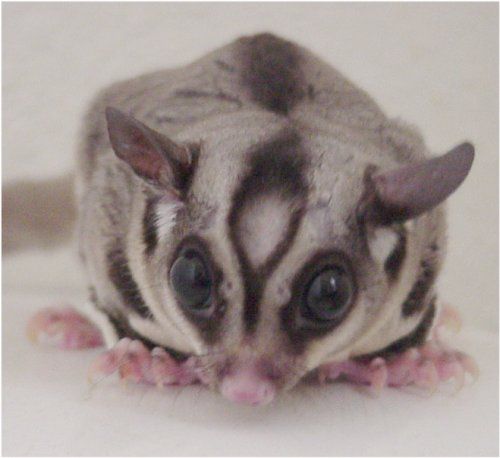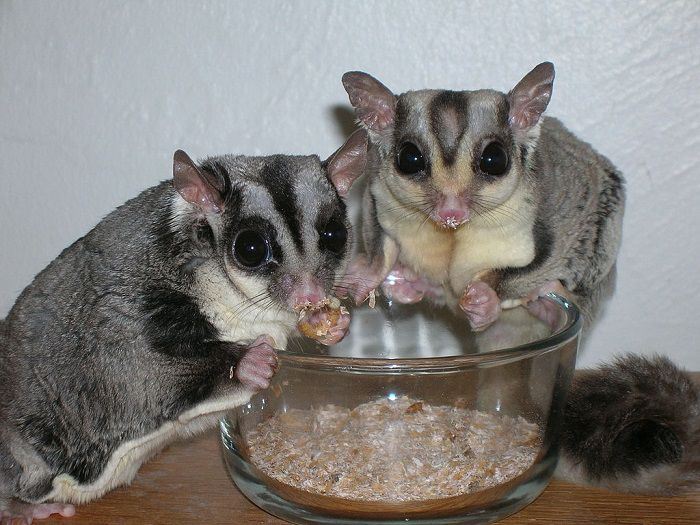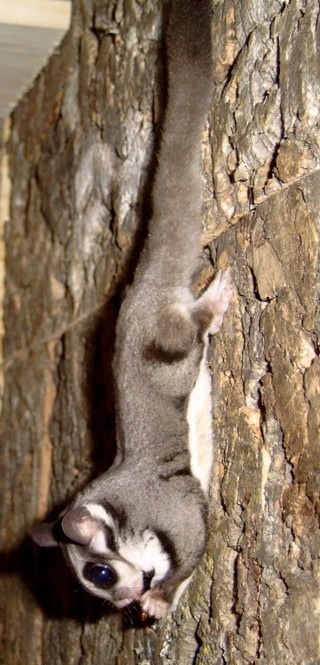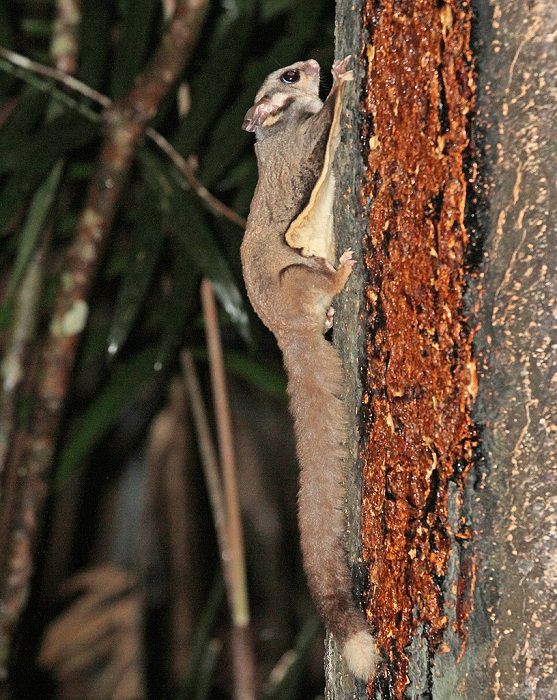Table of Contents
As a sugar glider keeper, you will already know that these adorable creatures make a whole host of sounds for many different reasons. They will bark, crab, or purr from time to time as a way of communicating with others or to show their excitement or displeasure. But what does it mean when your sugar glider keeps sneezing?
Why Do Sugar Gliders Sneeze?
What sounds like sneezing to you, may not actually be what this sound actually is. When sugar gliders groom themselves, they spit into their hands before rubbing them all over their body. This is how they wash themselves and it is the sound made during this process that is often mistaken for sneezing and/or hissing.
groom themselves, they spit into their hands before rubbing them all over their body. This is how they wash themselves and it is the sound made during this process that is often mistaken for sneezing and/or hissing.

Sugar Glider 
Sugar Gliders Eating Mealworms
Is Your Sugar Glider Sick?
If you are already aware of the sound your sugar glider makes when it is grooming itself, but this new sneezing sound is different, it could be an indication that a respiratory infection is present. It is worth noting though that sneezing will rarely be the only sign of infection.
If you are worried that your pet might have an infection, look out for other symptoms such as nasal discharge, watery eyes, loss of appetite, and trouble breathing.

One thing to be aware of when it comes to sugar gliders is that they usually try to avoid showing any signs of weakness. This means that when they get ill, they will try to mask the signs for as long as possible to avoid appearing vulnerable and hence easy prey for predators.
If you do spot signs of illness, it is likely that your sugar glider has been masking it for some time and so the illness will need to be treated as soon as possible. If you think your pet is ill, I recommend that you contact a vet immediately. The vet will likely prescribe antibiotics if your glider has an infection.
Photo Credits:
- Featured Image (Sugar Glider on Tree): Joseph C Boone
 – CC BY-SA 4.0
– CC BY-SA 4.0
- Sugar Glider: Dawson
 – CC BY-SA 2.5
– CC BY-SA 2.5
- Sugar Glider Upside Down: Anke Meyring
 – CC BY-SA 2.5
– CC BY-SA 2.5
- Sugar Gliders Eating Mealworms: OberonNightSeer
 – CC BY-SA 3.0
– CC BY-SA 3.0

